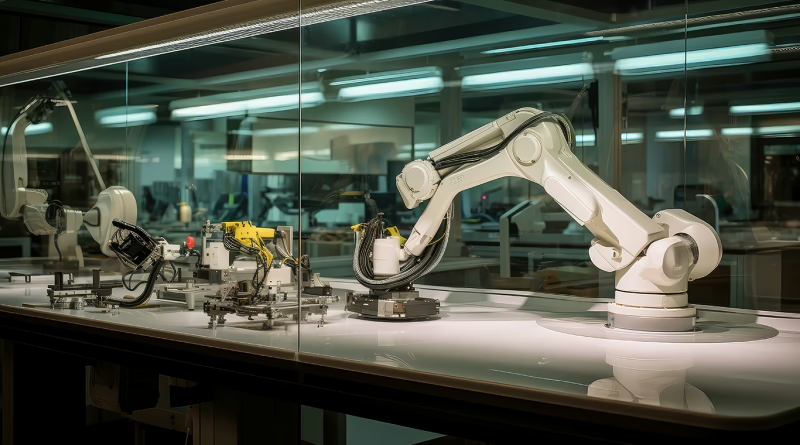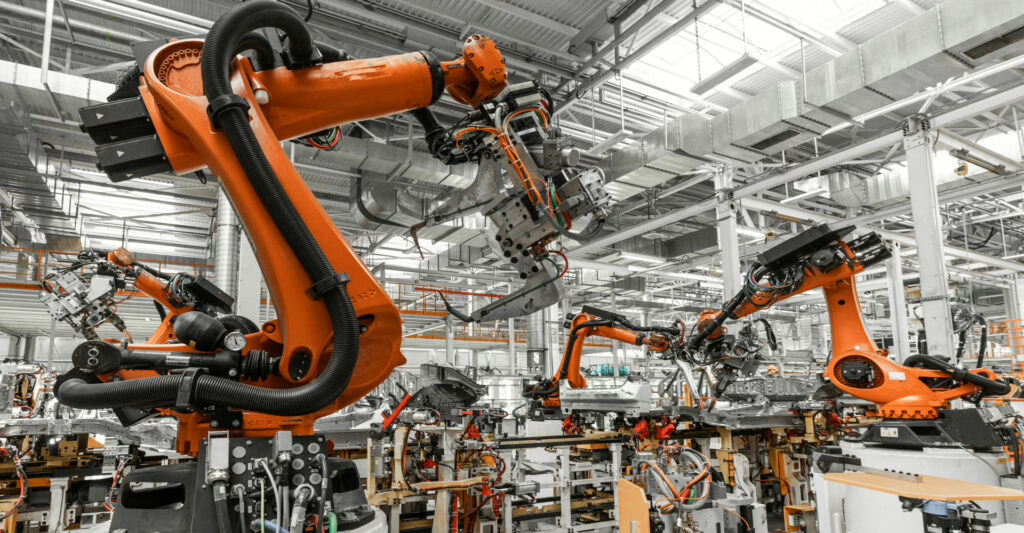The City of Lights isn’t just a global hub for culture and commerce; it’s rapidly becoming a beacon for technological innovation. For Small and Medium-sized Enterprises (SMEs) in Paris, the integration of Artificial Intelligence (AI) is no longer a futuristic concept but a vital pathway to enhanced efficiency, competitiveness, and sustainable growth. Specifically, the development and deployment of powerful AI agents offer a transformative edge, automating complex tasks, personalizing customer interactions, and providing invaluable data-driven insights.
This comprehensive guide will demystify the process of building and leveraging AI agents for Parisian SMEs, highlighting the immense potential these intelligent systems hold for businesses across various sectors.
Understanding AI Agents: The Next Frontier for Business Efficiency
Before diving into the “how,” let’s clarify what we mean by AI agents. Unlike traditional software that simply executes pre-programmed commands, AI agents are autonomous or semi-autonomous programs designed to perceive their environment, make decisions, and take actions to achieve specific goals. They can learn from data, adapt to new situations, and operate with minimal human intervention, making them incredibly powerful tools for streamlining operations and unlocking new possibilities.
For Parisian SMEs, the applications of AI agents are diverse and impactful:
- Automated Customer Service: AI chatbots and voice agents can handle routine inquiries, provide instant support, and even personalize recommendations, freeing up human staff for more complex issues.
- Intelligent Workflow Automation: Agents can automate data entry, document processing, email classification, and scheduling, significantly reducing manual overhead and errors.
- Predictive Analytics: AI agents can analyze vast datasets to forecast sales, identify market trends, predict equipment failures, and optimize inventory, enabling proactive decision-making.
- Personalized Marketing: Agents can segment customer bases, generate tailored content, and optimize campaign delivery for maximum engagement.
- Internal Knowledge Management: AI agents can quickly retrieve and synthesize information from internal documents, making knowledge accessible and fostering internal collaboration.
Why Parisian SMEs Need AI Agents Now
The competitive landscape in Paris is dynamic. SMEs face pressures to innovate, optimize costs, and deliver exceptional customer experiences. AI agents address these challenges head-on:
Boosting Productivity and Reducing Costs
One of the most immediate benefits of AI agents is their ability to automate repetitive, time-consuming tasks. This not only speeds up operations but also reduces the need for extensive manual labor, leading to significant cost savings. Imagine an AI agent automatically processing invoices, classifying customer emails, or generating initial drafts of marketing copy – freeing your team to focus on strategic initiatives.
Enhancing Customer Experience and Personalization
In a city known for its discerning clientele, personalized experiences are paramount. AI agents can analyze customer preferences and behaviors to provide highly relevant recommendations, tailor communications, and offer 24/7 support, leading to increased customer satisfaction and loyalty.
Gaining Deeper Business Insights
AI agents can process and analyze data at speeds and scales impossible for humans. This capability allows SMEs to uncover hidden patterns, predict future trends, and make data-driven decisions that can optimize everything from supply chains to marketing spend.
Fostering Innovation and Competitive Advantage
By automating routine tasks, AI agents empower employees to engage in more creative, value-added work. This fosters a culture of innovation, enabling Parisian SMEs to develop new products, services, and business models that differentiate them in the market.
The Journey to Building Powerful AI Agents
Building effective AI agents requires a structured approach. Here’s a step-by-step guide:
1. Identify Your Business Needs and Use Cases
The first and most crucial step is to define the specific problems you want to solve or the opportunities you want to seize with AI agents. Don’t adopt AI for AI’s sake.
- Start Small: Begin with “quick wins” – limited, easy-to-implement objectives that demonstrate immediate value. For example, automating customer support for frequently asked questions, or classifying incoming emails.
- Pinpoint Pain Points: Where are your current bottlenecks? What tasks consume significant time or resources?
- Brainstorm Opportunities: How could AI agents enhance your existing services or enable new ones?
2. Data Collection and Preparation: The Lifeblood of AI
AI agents are only as good as the data they’re trained on. For Parisian SMEs, this often means leveraging your existing operational data.
- Internal Data: Customer interaction logs, sales data, employee performance metrics, internal documents, product catalogs, and financial records are invaluable.
- External Data: Market trends, demographic information, and industry benchmarks can augment your internal datasets.
- Data Quality: Focus on clean, accurate, and relevant data. Poor data leads to poor AI performance. Consider data anonymization and compliance with GDPR, especially crucial for businesses operating in France.
3. Choosing the Right AI Technology and Expertise
This is where the technical decisions come into play.
- Generative AI: For tasks like content creation, automated responses, and document summarization.
- Predictive AI: For forecasting, trend analysis, and risk assessment.
- Operational AI (Neural Operations): For integrating AI directly into business processes, such as intelligent classification and workflow automation.
For many SMEs, developing these solutions in-house can be resource-intensive. This is where specialized AI consulting and solutions companies like Daijobu AI come into play. Daijobu AI, a French artificial intelligence consulting and solutions company, specializes in creating custom AI models across multiple industries. They emphasize data sovereignty, control, and customization, ensuring that AI adapts to your business needs, not the other way around. Their approach focuses on creating and training specialized models using client data to achieve high performance while remaining cost-effective through their innovative leasing model.
4. Custom Model Development and Training
Generic AI models often fall short for specific business needs. Custom models, trained on your unique datasets, deliver superior results.
- Tailored Solutions: Work with experts to develop models specifically trained for your exclusive use.
- Iterative Process: AI development is rarely a one-shot deal. It involves continuous refinement and iteration based on performance and feedback.
- Integration: Ensure the AI agent can seamlessly integrate with your existing systems (CRM, ERP, website).
Daijobu AI offers “Turnkey Model Creation,” providing tailor-made models specifically trained for exclusive client use, complete with API systems for easy access and management. They also prioritize “Control and Safety Assurance,” offering total control over data (training and logs), hosting models on sovereign French infrastructure, and ensuring compliance with French and EU regulations like GDPR.
5. Deployment and Monitoring
Once your AI agent is developed and trained, it’s time to deploy it into your operations.
- Secure Deployment: Ensure the agent is hosted on a secure, reliable infrastructure. For Parisian SMEs, sovereign cloud infrastructure in France can be a significant advantage, ensuring data residency and compliance.
- Performance Monitoring: Continuously monitor the agent’s performance, accuracy, and efficiency.
- Feedback Loop: Establish a feedback mechanism to identify areas for improvement and retrain the model as needed.
6. Continuous Improvement and Scaling
AI agents are not static. They require ongoing maintenance, updates, and retraining to remain effective.
- Adaptation: As your business evolves, so too should your AI agents.
- Scaling: As you see success, explore opportunities to expand the use of AI agents to other areas of your business.
- Training and Education: Equip your team with the knowledge to work alongside and leverage AI agents effectively. Companies like Daijobu AI also offer training and education for both executive and technical staff on the latest AI industry developments and practical applications.
Overcoming Challenges: A Parisian Perspective
While the benefits are clear, SMEs might face challenges in AI adoption:
- Data Privacy and Security: With stringent GDPR regulations in Europe, ensuring data privacy is paramount. Choosing providers with sovereign infrastructure and robust security protocols (like ISO/IEC 27001:2022 certification and end-to-end encryption) is crucial.
- Cost and Investment: Initial investment can be a concern. Innovative business models, such as Daijobu AI’s leasing model, can make AI more accessible by transforming upfront costs into operational expenses.
- Talent Gap: Finding or training in-house AI talent can be difficult. Partnering with specialized AI firms can bridge this gap.
- Integration Complexity: Integrating new AI systems with legacy infrastructure can be challenging. Look for solutions that offer seamless integration support.
Conclusion
The era of powerful AI agents is here, and Parisian SMEs are perfectly positioned to capitalize on this transformative technology. By strategically identifying needs, leveraging high-quality data, and partnering with expert AI solution providers, businesses in the heart of France can unlock unprecedented levels of efficiency, innovation, and customer satisfaction. The journey may seem complex, but with a clear roadmap and the right support, building powerful AI agents is not just achievable – it’s essential for thriving in the modern economic landscape. Embrace the future; your Parisian SME deserves to shine even brighter.











